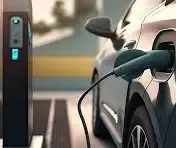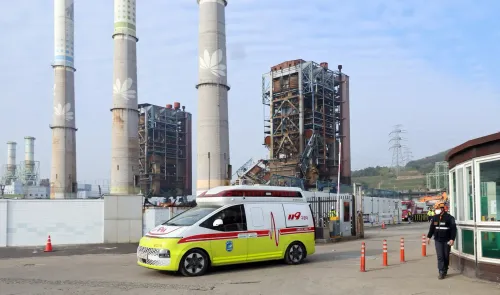Ethiopia Reveals Ambitious Plans for Expanding Electric Vehicle Charging Network

Addis Ababa, Jan 13 (NationPress) The government of Ethiopia has disclosed its strategic plans to enhance the nation's electric vehicle (EV) charging network, with the goal of establishing charging stations at intervals of 50 to 120 kilometers, according to an official from the Petroleum and Energy Authority of Ethiopia.
A regulatory directive outlining the framework for EV charging systems has received approval, as reported by Bahru Oljra, the executive director of energy sector control at the authority, during an interview with the state-affiliated Fana Broadcasting Corporation on Friday.
Oljra highlighted that this directive covers essential aspects such as licensing for charging stations, service tariffs, power supply standards, and security measures. He pointed out that the current EV charging options are limited, with most vehicle owners depending on home charging or privately-operated stations, as noted by the Xinhua news agency.
Ethiopia has experienced a significant rise in EV adoption, creating a pressing need for a robust charging network to facilitate long-distance travel and alleviate range anxiety among EV users.
As per the Ethiopian Ministry of Transport and Logistics, there are over 100,000 EVs currently in operation, with government objectives set to increase this figure to 500,000 within the next decade, aiming to replace 95 percent of conventional fuel-powered vehicles.
To expedite the transition to electric mobility, the Ethiopian government instituted a ban on the importation of gasoline and diesel vehicles early last year, prompted by a global increase in fuel prices.
In addition to this, the Ethiopian government has confirmed that the Grand Ethiopian Renaissance Dam (GERD) has reached 97.6 percent completion.
In celebration of the dam's nearing completion, the government has initiated a fundraising campaign, encouraging financial institutions and the general public to enhance their contributions to the project, as stated in a Saturday announcement by the Ethiopian Ministry of Water and Energy.
Aregawi Berhe, the director general of the GERD project public participation coordination office, emphasized during a resource mobilization event that the GERD, recognized as Africa's largest hydroelectric dam, has made remarkable progress. He urged for intensified fundraising efforts and increased public involvement to ensure the timely and successful completion of the project.
Ethiopia's State Minister of Water and Energy, Sultan Wali, commended the 'steadfast support' of Ethiopians both domestically and abroad throughout the dam's construction. He underscored the critical importance of maintaining this support as the project approaches its final stages.
Financed entirely through domestic resources, the GERD stands as a symbol of Ethiopia's renaissance. Since construction commenced in 2011, Ethiopians have rallied behind the project through various means, including bond sales, athletic events, and lottery draws.
Situated in the northwestern Benishangul-Gumuz region along the Blue Nile River, the GERD was initially designed to produce 6,500 megawatts of electricity, which was later revised to 5,150 megawatts.
Nevertheless, the project has sparked contention among Nile Basin nations. While Ethiopia perceives the dam as vital to its developmental objectives and aspirations for middle-income status, Egypt and Sudan have expressed concerns regarding its potential effects on their water allocations.








